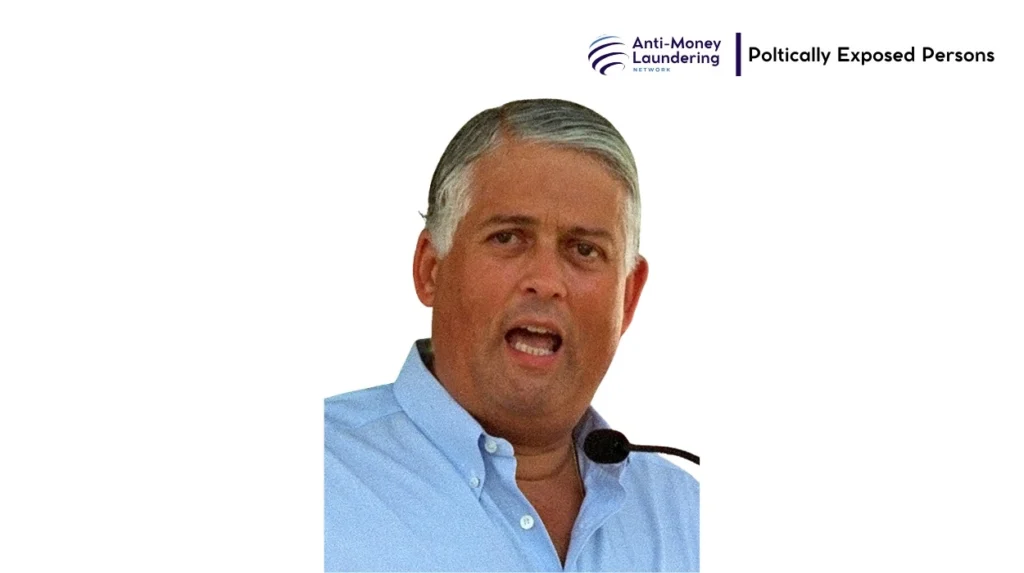Ernesto Pérez Balladares is a prominent Panamanian politician who served as the President of Panama from 1994 to 1999. Known by his nickname El Toro (“The Bull”), he played a crucial role in Panama’s political landscape during the post-dictatorship era. Balladares’ tenure was marked by vigorous free-market reforms and privatization efforts, alongside controversial moves that sparked debates about political rehabilitation and corruption. This article offers an in-depth profile of Ernesto Pérez Balladares, covering his early life, personal background, political career, wealth, and legacy while critically examining his role as a politically exposed person in a system often criticized for impunity and lack of transparency.
Early Life and Background
Born on June 29, 1946, in Panama City, Panama, Ernesto Pérez Balladares belongs to one of Panama’s established political families. His place of birth situated him at the heart of the nation’s sociopolitical life from the beginning. Educated in the United States, Ernesto Pérez Balladares education included studies designed to equip him with expertise in banking and economics, a foundation that later informed his political and economic policies.
His citizenship and nationality are Panamanian, rooted deeply in the country’s political and social fabric. His family background and youth laid the groundwork for his political journey, closely tied to the Democratic Revolutionary Party (PRD), which historically represented the populist legacy of General Omar Torrijos.
Personal Life
Details about Ernesto Pérez Balladares spouse reveal that he is married to Dora Boyd de Pérez Balladares, a figure occasionally mentioned in political biographies though maintaining a low profile in the public eye. His family includes children, referenced as Ernesto Pérez Balladares hijos in Spanish sources, which underscores his role as a family man beyond the public office.
Though his family maintains some privacy, public attention has sometimes touched upon the broader Ernesto Pérez Balladares family, especially in investigations related to political influence and wealth. The family’s socio-political position has contributed to keeping Balladares deeply connected within Panama’s elite circles.
Career and Achievements
Ernesto Pérez Balladares position as the 33rd President of Panama from September 1, 1994, until September 1, 1999, places him squarely within a pivotal moment in Panamanian history. The Resumen del gobierno de Ernesto Pérez Balladares reflects a period focused on economic liberalization, such as the privatization of state enterprises and strengthening market mechanisms. He attempted to shift Panama closer to international trade standards and fostered a stronger alliance with the United States, emphasizing the strategic importance of the Panama Canal.
Before his presidency, Ernesto Pérez Balladares educación and career as a banker provided him with financial acumen necessary for his policy agenda. Balladares was also instrumental in refurbishing the image and influence of the PRD, distancing it from its association with Manuel Noriega’s military dictatorship years, which many saw as necessary for democratic continuity.
Ernesto Pérez Balladares achievements include ushering in reforms that sought to modernize Panama’s economy, though efforts to amend the constitution to allow for a second term were rejected in a referendum in 1998—a significant political event marking the limits of his influence.
Lifestyle, Wealth, and Assets
Discussion of Fortuna de Ernesto Pérez Balladares (the wealth of Ernesto Pérez Balladares) brings controversy. Though no transparent financial disclosures have been publicized in detail, his lifestyle and rumored offshore accounts have drawn scrutiny, especially given Panama’s extensive use of offshore financial centers. Allegations of wealth accumulation beyond official earnings are tied to his time in office, although these remain largely unproven.
Reports and investigations hint at an opulent lifestyle, befitting a man who once held the highest office in Panama, with possible assets including luxury properties and other wealth indicators, though specifics like ownership of a palace or yacht are undocumented in the public domain.
Influence, Legacy, and Global Recognition
Ernesto Pérez Balladares’ legacy is mixed. His governance helped stabilize Panama’s economy while moving the country away from its dictatorial past; however, criticism persists regarding the rehabilitation of officials linked to the Noriega regime and increased elite influence. His administration serves as both a model of economic progress and cautionary tale of enduring corruption.
Internationally, he is recognized as a figure who exemplifies Panama’s turbulent transition in the 1990s, a period when the country navigated challenges of democratization, economic reform, and governance rooted in weak institutional frameworks. His role in elections and political maneuvering has drawn the attention of scholars and journalists alike.
Financial Transparency and Global Accountability
As a politically exposed person, Ernesto Pérez Balladares embodies the risks and challenges tied to global political accountability. His administration has been scrutinized for alleged corruption and money laundering, notably the caso lucky games ernesto.perez balladares, a significant scandal implicating figures in gambling and illicit financial flows.
The Ernesto Pérez Balladares net worth has never been conclusively established, amid allegations of hidden assets in offshore accounts uncovered by leaks such as the Panama Papers. These suspicions highlight systemic vulnerabilities within Panama’s financial system that have facilitated impunity and elite shielding.
Globally, the case of Balladares underscores persistent calls for transparency reforms, stronger AML regulations, and enhanced scrutiny over PEPs. The intersection of political power, family connections, and opaque financial dealings remains a pressing concern for Panama and the international community.
Ernesto Pérez Balladares stands as a complex figure in Panama’s political history. Educated and connected, his rise and presidency symbolize both the promise and pitfalls of Panama’s post-authoritarian democracy. His policy efforts supported economic reforms, yet his tenure was marred by controversies and allegations of malpractice that darken his legacy. The ongoing debates about his ideology and impact reflect Panama’s broader struggles with governance, corruption, and accountability.
Understanding Balladares’ story provides valuable insights into the workings of a political system where personal ambition, family ties, and national priorities intersect. Whether remembered for his governance or shadowed by scandal, Ernesto Pérez Balladares remains a key figure to study within the history of Panama and political risk management worldwide.

